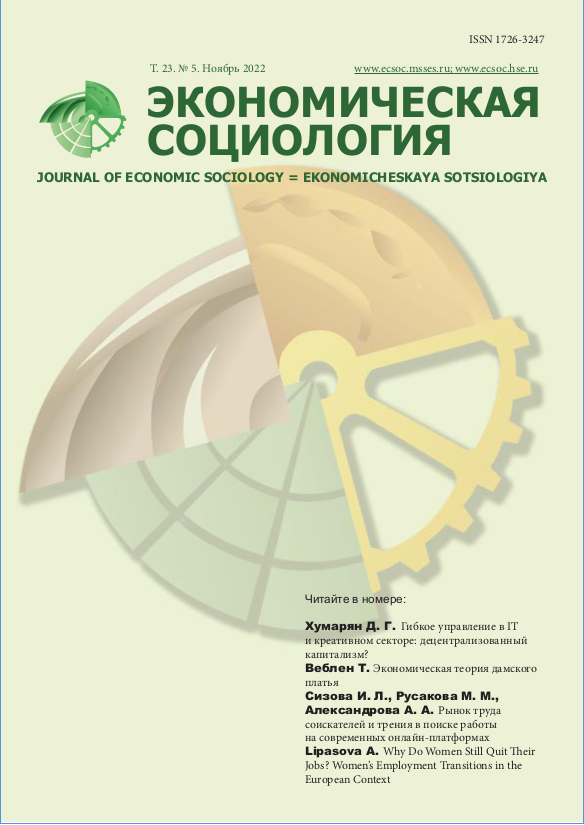Why Do Women Still Quit Their Jobs? Women’s Employment Transitions in the European Context
Abstract
Vast amounts of research are devoted to the ‘motherhood penalty’: discrimination in hiring, salary, and leadership opportunities for working mothers relative to childless women. For a significant number of women, ‘employed’ is not a continuous uninterrupted status but rather a type of activity that can be paused for an indefinite period in order to pursue other life goals, such as raising a family. A large proportion of women do not return to the labour market after giving birth, and others switch to part-time or stay out of work for a long time before returning. Using data from the first and the second waves of the Generations and Gender Survey (GGS) for Austria, Bulgaria, France, Georgia, Hungary, and Russia, I explore which factors influence the probability that women employed fulltime will go part-time or withdraw from paid work (i. e., become inactive). I analyse the sample of 1446 childless women employed full-time during the first wave of the study. This paper focuses on women’s individual characteristics and their employment as well as contextual factors. The results show that, apart from the transition to motherhood, the factors that influence women’s participation in the labour market are traditional gender ideology and lack of state support.













